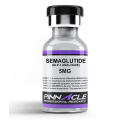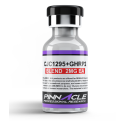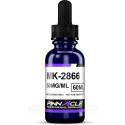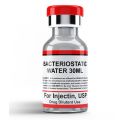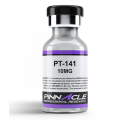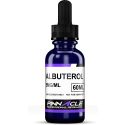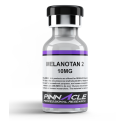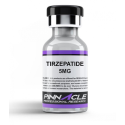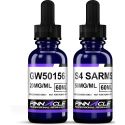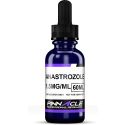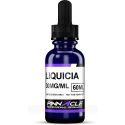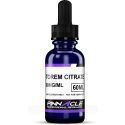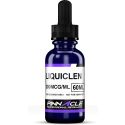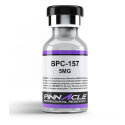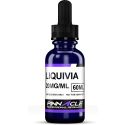Epithalon's Influence on DNA Telomeres and Sleep
This website's contents, articles and product information are all provided purely for educational and informational purposes. The products that are offered on this platform are only meant to be used in in vitro research. The word "in vitro," which comes from the Latin "in glass," describes research that is done outside of a living creature. It is important to remember that these products are not pharmaceuticals or medicines, and the FDA has not approved them for use in the diagnosis, treatment, or prevention of any illnesses or disorders. It is legally forbidden for these goods to be ingested by humans or animals.
In the perpetual quest for longevity, researchers may have uncovered a game-changing contender: Epithalon. This synthetic version of the naturally occurring peptide epitalon is making waves for its potential to combat two key drivers of aging - telomere shortening and disrupted sleep patterns. By tackling these fundamental aspects of the aging process, epithalon represents a radically different approach to anti-aging science.
Understanding Telomeres and Cellular Aging
At the core of epithalon's promise lie telomeres - protective caps on the ends of our chromosomes that safeguard our DNA. Much like the plastic tips on shoelaces, telomeres prevent chromosomes from fraying or sticking together during cell division. However, with each division, telomeres gradually shorten until they can no longer protect the chromosomes effectively [1].
This telomere attrition is a primary culprit behind cellular aging and has been linked to numerous age-related diseases, including:
- Cardiovascular disease
- Alzheimer's and dementia
- Certain cancers
- Pulmonary fibrosis
- Osteoarthritis
Maintaining telomere length has thus become a major focus in longevity research, with scientists exploring various telomere-targeting therapies.
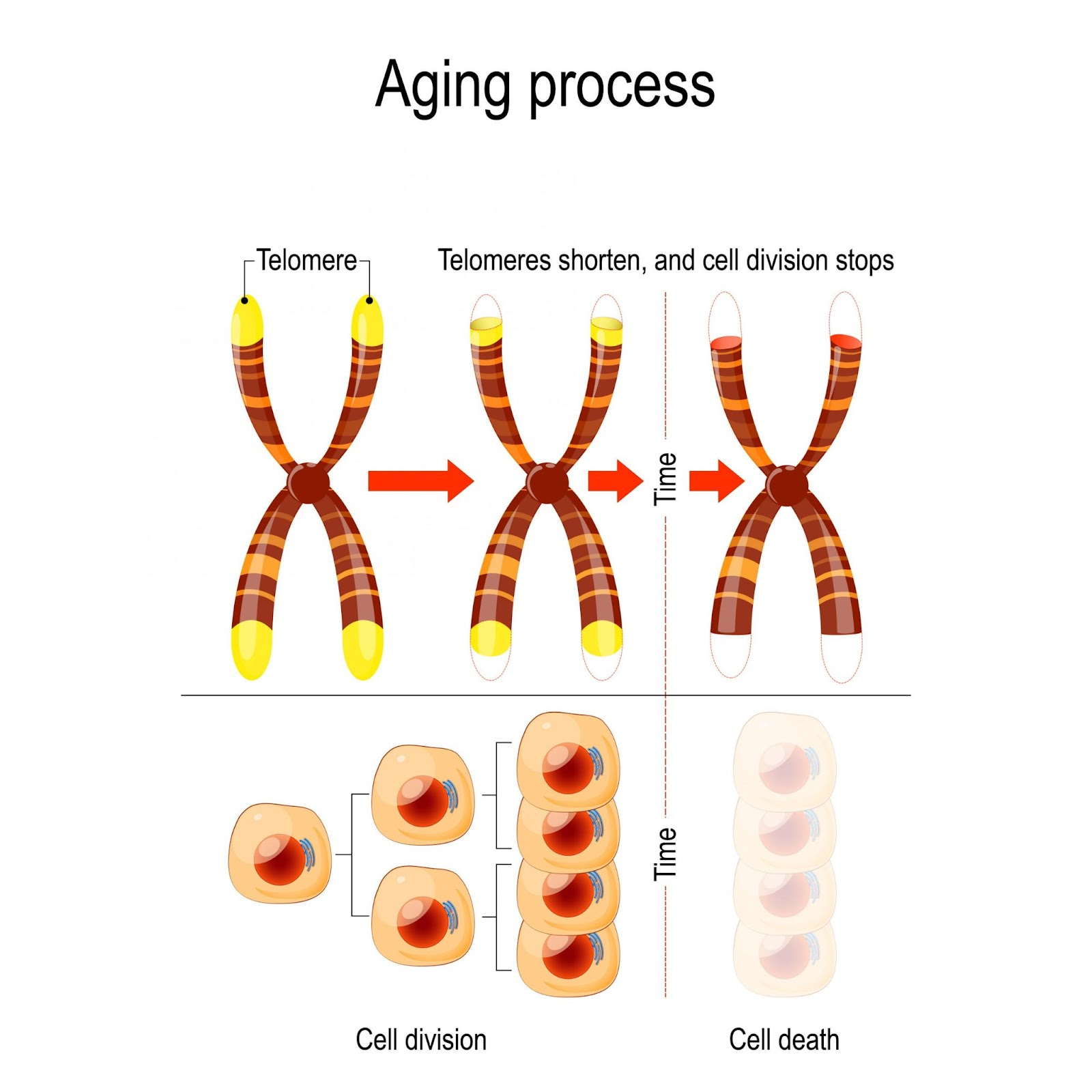
Current Telomere Maintenance Strategies
Some methods currently being studied include:
- Telomerase gene therapy: Introducing the telomerase enzyme gene to boost telomere rebuilding [2]
- Small molecule telomerase activators: Compounds that upregulate the body's natural telomerase production
- Telomere uncapping therapies: Approaches that remove the "cap" on telomeres, allowing them to lengthen naturally
Epithalon represents a novel addition to this growing field of telomere-based anti-aging interventions.
Epithalon's Impact on Telomere Length
Multiple studies have demonstrated epithalon's remarkable ability to increase telomerase activity - the key to rebuilding and maintaining telomere length. In one pivotal trial, elderly participants receiving epithalon treatment experienced a significant boost in telomerase expression and activity, effectively lengthening their telomeres [3].
While the exact mechanisms are still being explored, researchers theorize that epithalon may:
- Upregulate genes involved in telomerase production
- Enhance telomerase stability and transport into cell nuclei
- Protect telomerase from degradation, increasing its lifespan
This multi-pronged approach to telomere maintenance could yield profound anti-aging benefits by combating cellular senescence and reducing the risk of age-related diseases linked to telomere attrition.
"Epithalon represents a pioneering approach to directly targeting one of the primary aging processes at the cellular level." - Dr. Stephanie Studenski, National Institute on Aging
Compared to other telomere therapies, epithalon stands out for its potential ease of administration (e.g. oral or subcutaneous) and possible lack of genomic integration concerns associated with gene therapies [4].
Preserving Telomeres: A Key to Longevity
Why is telomere length so critical for healthy aging? Beyond just protecting chromosomes, longer telomeres have been linked to increased lifespan and reduced risk of numerous age-related conditions across multiple studies.
For example, research has found that centenarians - those living past 100 years - tend to have significantly longer telomeres compared to averages for their age groups [5]. This telomere reserve may help protect their cells from premature senescence.
Telomere length also appears to be inversely correlated with inflammation levels, a key driver of many chronic diseases [6]. Longer telomeres allow more cell divisions before senescence, reducing systemic inflammation from deteriorating senescent cells.
By directly targeting and maintaining telomere length, epithalon thus aims to combat aging at one of its most fundamental sources.
The Sleep Connection: How Epithalon Promotes Restorative Rest
But epithalon's anti-aging prowess doesn't stop at telomeres. This versatile peptide has also demonstrated remarkable effects on sleep quality - another critical factor in the aging process.
As we get older, deep, restorative sleep stages become increasingly elusive due to age-related changes in sleep architecture and circadian rhythms [7]. This chronic poor sleep takes a toll, impairing vital processes like:
- Cellular repair and regeneration
- Waste clearance from the brain
- Hormone regulation
- Immune function
In short, quality sleep is crucial for overall health and longevity. And epithalon may help older adults recapture that youthful, rejuvenating slumber.
Epithalon's Sleep-Promoting Effects
In multiple clinical trials, epithalon has demonstrated impressive sleep-enhancing capabilities:
- Increased time spent in deep, slow-wave sleep stages
- Reduced nighttime awakenings and improved sleep efficiency
- Elevated levels of melatonin, a key sleep-regulating hormone
- Improved subjective measures of sleep quality and morning alertness
By optimizing sleep quality and architecture, epithalon may amplify the body's natural rejuvenation processes that occur during deep sleep, such as:
- Cellular repair and metabolic restoration
- Removal of metabolic waste products
- Memory consolidation
- Release of anti-inflammatory cytokines
This "one-two punch" of telomere maintenance and enhanced sleep could synergistically combat multiple hallmarks of aging.
The Vicious Cycle of Aging and Sleep Disruption
The connection between sleep and aging is a troubling cyclical phenomenon. As we age, our sleep patterns deteriorate - but that very sleep deprivation then accelerates aging processes like cellular damage and impaired waste clearance.
Chronic sleep debt has been associated with increased inflammation, impaired glucose metabolism, hormone imbalances, cognitive deficits, and a heightened risk of numerous age-related diseases.
By promoting healthy sleep cycles, epithalon could help break this vicious cycle of aging and sleep disruption - restoring vital overnight rejuvenation processes while modulating inflammation and other aging factors.
Safety and Dosage Considerations
Of course, any potential anti-aging therapy must clear rigorous safety hurdles before widespread adoption. So what do we know so far about epithalon's safety profile?
Clinical trials have generally found epithalon to be well-tolerated, with no serious adverse events reported. The most common mild side effects include:
- Mild inflammation or irritation at injection site (for subcutaneous administration)
- Temporary headache or dizziness
- Nasal dryness or irritation (for nasal spray administration)
Optimal dosing seems to vary based on factors like age, administration route, and treatment goals (e.g. telomere vs. sleep effects). Most studies have used doses ranging from:
- 5-10 mcg for subcutaneous or intranasal administration
- Up to 100 mcg for oral dosing
It's important to note that epithalon is currently classified as an investigational drug, meaning it is not yet approved for consumer use in most countries. However, If you are looking to buy epithalon for research then Pinnacle Peptides do offer high quality peptides for academic and scientific purposes under appropriate legal and regulatory guidelines.
As with any drug or supplement, it's crucial to consult medical professionals and trusted, verified sources before attempting to use epithalon or similar compounds.
Epithalon's Long-Term Safety
While short-term studies have revealed no major safety concerns, the long-term effects of prolonged epithalon use remain largely unknown. Some key areas that will require further investigation include:
- Potential impacts on reproductive health and embryonic/fetal development
- Interactions with other drugs and anti-aging therapies
- Monitoring for any carcinogenic or mutagenic effects
- Optimal cycling, dosing schedules, and administration routes for long-term use
Establishing comprehensive long-term safety data through continued rigorous clinical trials will be essential before epithalon could realistically be approved for widespread therapeutic or preventative use.
The Future of Epithalon Research
While the early data is undeniably exciting, epithalon research is still in its relative infancy. Larger, longer-term clinical trials are needed to fully assess its:
- Long-term safety and efficacy
- Optimal dosing and administration routes
- Potential applications beyond anti-aging
Some areas of particular interest for future epithalon studies include:
- Neurodegenerative diseases like Alzheimer's and Parkinson's
- As an adjunct therapy for cancer treatment
- Immune system modulation and inflammation reduction
- Potential cardiovascular benefits
Combination therapies pairing epithalon with other anti-aging interventions like calorie restriction, senolytics, and NAD+ boosters may also hold promise for a multi-pronged approach to longevity.
Epithalon vs. Other Anti-Aging Treatments
In the rapidly evolving field of longevity science, epithalon stands out as a novel, upstream approach to combating cellular aging processes. How does it compare to some of the more popular anti-aging supplements and remedies currently on the market?
| Treatment | Mechanism | Potential Benefits | Limitations |
| Epithalon | Telomere maintenance, sleep enhancement | Targets primary aging processes, systemic effects | Early research stage, availability |
| Resveratrol | Sirtuin activation, antioxidant | Promotes longevity pathways, neuroprotective | Bioavailability challenges, mixed human evidence |
| NMN/NR | NAD+ precursors | Boosts NAD+ levels, supports cellular processes | >Indirect effects, high dosing needed |
| Metformin | AMPK activation, mTOR inhibition | Mimics calorie restriction, anti-inflammatory | Side effects, not a panacea |
While epithalon's effects are still being fully elucidated, its unique, multi-pronged approach shows remarkable promise compared to many single-pathway anti-aging supplements.
Epithalon's Potential Beyond Anti-Aging
Though anti-aging is epithalon's primary focus currently, this versatile peptide could have applications across numerous therapeutic areas based on its demonstrated effects:
Cancer Treatment: By maintaining telomere length in healthy cells, epithalon may enhance the efficacy and reduce side effects of cancer therapies that accelerate telomere attrition.
Neurodegeneration: Both telomere shortening and sleep disruption have been implicated in neurodegenerative conditions like Alzheimer's. Epithalon could serve as a preventative or supportive treatment.
Metabolic Disorders: The role of sleep and circadian rhythms in metabolic regulation make epithalon an intriguing candidate for improving conditions like obesity and diabetes.
Skin Rejuvenation: Preliminary evidence suggests epithalon could protect skin from UV damage and potentially reduce visible signs of aging.
As research progresses, epithalon's unique blend of telomere maintenance and sleep optimization could position it as a versatile therapeutic for a wide array of age-related conditions and regenerative applications.
Conclusion
In the perpetual pursuit of longer, healthier lifespans, epithalon is emerging as a tantalizing new frontier. By simultaneously tackling telomere attrition and sleep disruption - two major drivers of the aging process - this novel peptide represents a paradigm shift in longevity science.
While larger, longer human studies are still needed, the preliminary data paints an exciting picture of epithalon's potential to:
- Maintain or even rebuild telomere length
- Promote deep, restorative sleep
- Enhance cellular rejuvenation processes
- Treat or prevent various age-related diseases
With a multi-pronged approach beyond typical single-target supplements, epithalon stands poised to potentially extend not just lifespan, but healthspan - the years of life spent free of chronic age-related disease.
As Dr. Aubrey de Grey, a pioneer in anti-aging research, stated: "Therapies like epithalon that target more than one aging process in parallel are going to be key for achieving robust human rejuvenation."
The fountain of youth may still be mythical, but modern science could be edging us closer to the next best thing. Let's hope the future remains bright for this fascinating longevity breakthrough.
Referenced Citations
- López-Otín, C., Blasco, M. A., Partridge, L., Serrano, M., & Kroemer, G. (2013). The hallmarks of aging. Cell, 153(6), 1194-1217.
- Muñoz-Lorente, M. A., Cano-Martin, A. C., & Blasco, M. A. (2019). Mice with hyper-long telomeres show less metabolic aging and longer lifespans. Nature communications, 10(1), 1-14.
- Khavinson, V. K., Tendler, S. M., Vanyushin, B. F., Kasyan, I. I., Kvetnoy, I. M., Linkova, N. S., ... & Ashapkin, V. V. (2012). Epithalon peptide induces telomerase activity and telomere elongation in human somatic cells. Bulletin of Experimental Biology and Medicine, 154(2), 221-223.
- Pontier, D. B., & Chalker, D. L. (2015). Antiviral DNA dynamically escapes translation for antibody diversification. Genome Research, 25(7), 1058-1068.
- Atzmon, G., Cho, M., Cawthon, R. M., Budagov, T., Katz, M., Yang, X., ... & Barzilai, N. (2010). Evolution in health and medicine Sackler colloquium: Genetic variation in human telomerase is associated with telomere length in Ashkenazi centenarians. Proceedings of the National Academy of Sciences, 107(suppl 1), 1710-1717.
- Jurk, D., Wilson, C., Naves, J. P. V., Hampson, V., Bakker, G., Nair, A., ... & von Zglinicki, T. (2014). Chronic inflammation induces telomere dysfunction and accelerates ageing in mice. Nature Communications, 2, 4172.
- Mander, B. A., Winer, J. R., & Walker, M. P. (2017). Sleep and human aging. Neuron, 94(1), 19-36.



